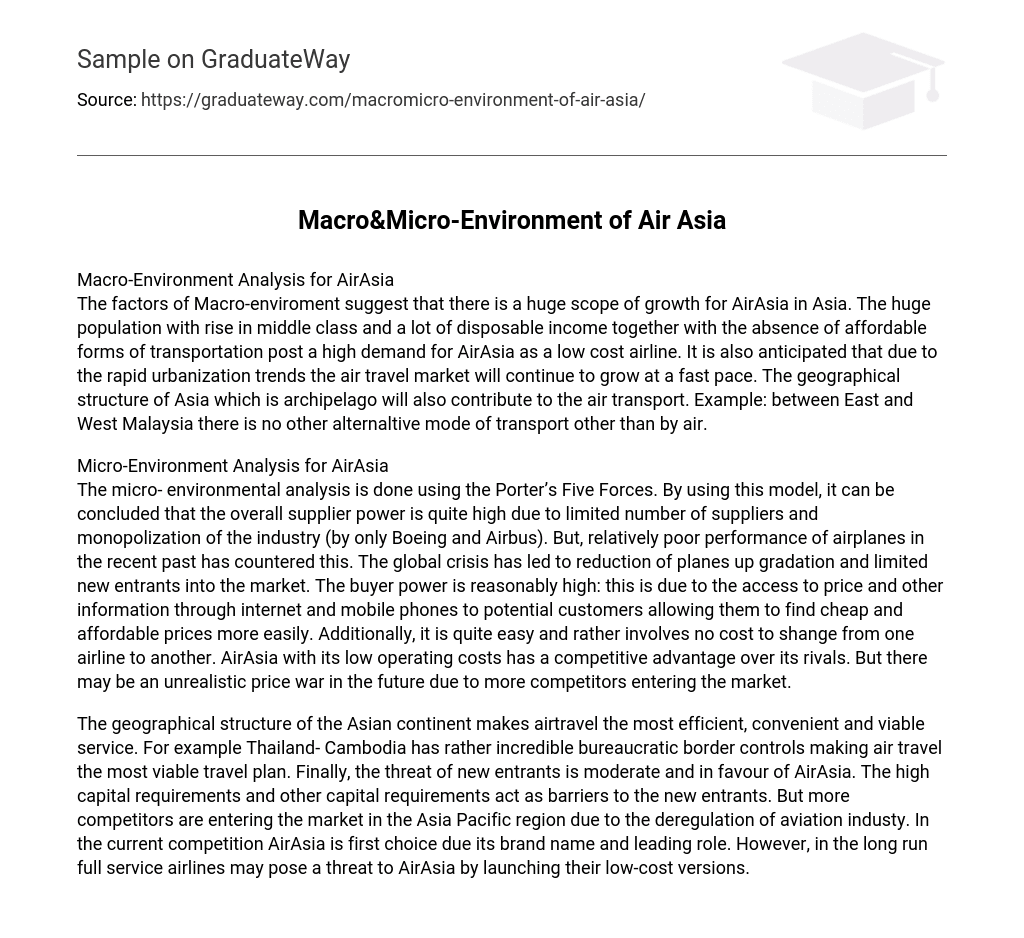Macro-Environment Analysis for AirAsia
The factors of Macro-enviroment suggest that there is a huge scope of growth for AirAsia in Asia. The huge population with rise in middle class and a lot of disposable income together with the absence of affordable forms of transportation post a high demand for AirAsia as a low cost airline. It is also anticipated that due to the rapid urbanization trends the air travel market will continue to grow at a fast pace. The geographical structure of Asia which is archipelago will also contribute to the air transport. Example: between East and West Malaysia there is no other alternaltive mode of transport other than by air.
Micro-Environment Analysis for AirAsia
The micro- environmental analysis is done using the Porter’s Five Forces. By using this model, it can be concluded that the overall supplier power is quite high due to limited number of suppliers and monopolization of the industry (by only Boeing and Airbus). But, relatively poor performance of airplanes in the recent past has countered this. The global crisis has led to reduction of planes up gradation and limited new entrants into the market. The buyer power is reasonably high: this is due to the access to price and other information through internet and mobile phones to potential customers allowing them to find cheap and affordable prices more easily. Additionally, it is quite easy and rather involves no cost to shange from one airline to another. AirAsia with its low operating costs has a competitive advantage over its rivals. But there may be an unrealistic price war in the future due to more competitors entering the market.
The geographical structure of the Asian continent makes airtravel the most efficient, convenient and viable service. For example Thailand- Cambodia has rather incredible bureaucratic border controls making air travel the most viable travel plan. Finally, the threat of new entrants is moderate and in favour of AirAsia. The high capital requirements and other capital requirements act as barriers to the new entrants. But more competitors are entering the market in the Asia Pacific region due to the deregulation of aviation industy. In the current competition AirAsia is first choice due its brand name and leading role. However, in the long run full service airlines may pose a threat to AirAsia by launching their low-cost versions.





